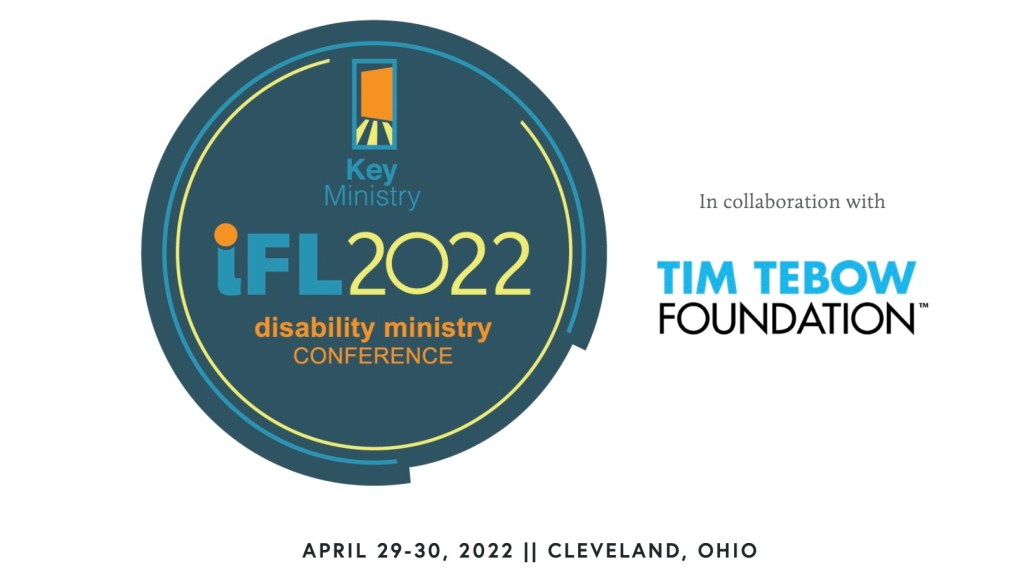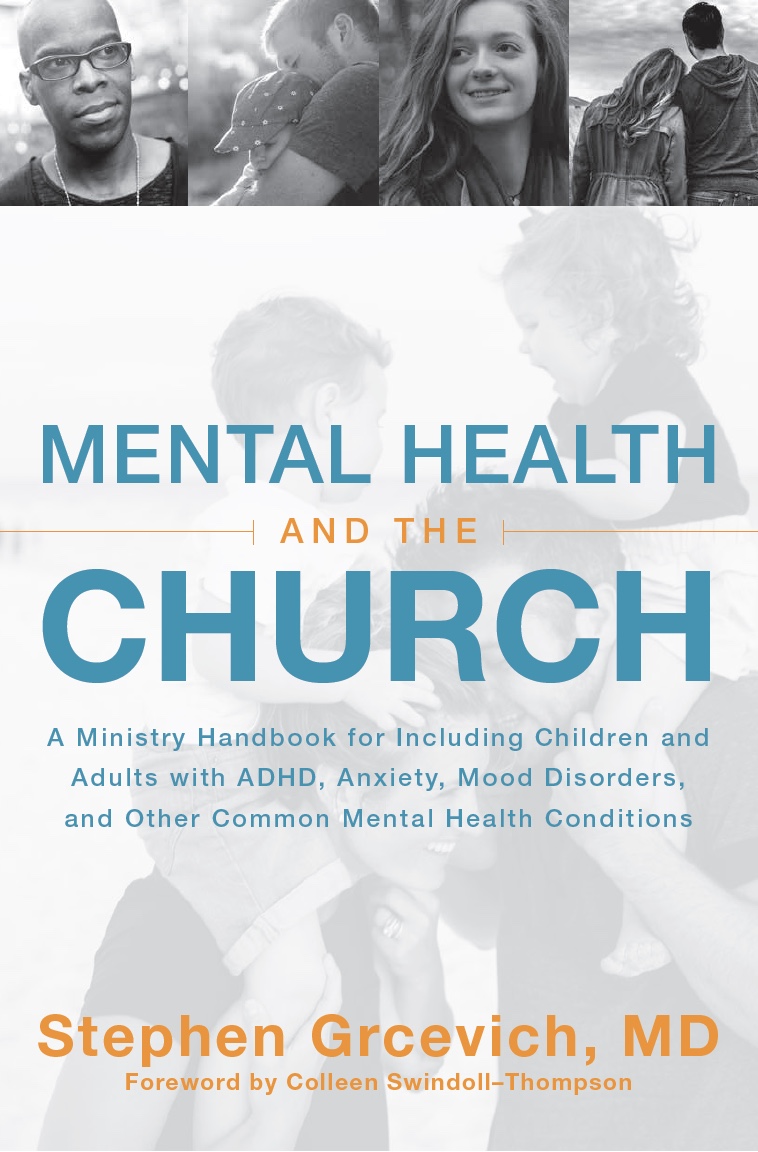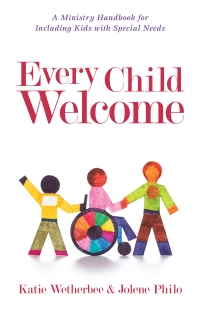
One of my favorite ministry-related tasks during the year is the process of selecting speakers and putting together the program for IFL, the big disability ministry conference we’ve usually hosted in the spring which will again take place on April 29th and 30th in Cleveland. The best part of the process involves coming to learn about the ministries of the speakers who are seeking to be part of our conference for the first time.
Unlike most large ministry conferences, ever since our first event eleven years ago we’ve always opened the ability to be a speaker to any Christian with new ideas or resources for doing disability ministry or growing the disability ministry movement. We want folks who are doing important work in relative obscurity to become known within the church and to build relationships with other leaders called to the disability ministry field. This year, we’re planning to feature nineteen new faces at our conference who have never presented at IFL before, many of whom have never had the opportunity to speak at a ministry conference that draws leaders from across North America and beyond.
Our team has been incredibly blessed by the leaders we met for the first time through the conference. Two members of the program committee (Tiffany Crow and Lamar Hardwick) responsible for selecting speakers and topics for our conference we first met through IFL, and Lamar recently joined Key Ministry’s Board of Directors. In the process of writing this post, we were trying to put together a list of all the people who either contribute content to our ministry or serve in other areas as valued colleagues who we first met in person through one of our conferences.
The process involved with putting together the program this year was at least as hard as it has ever been. We had far more speakers apply than we had slots on the program, and there are folks we had to turn down even though they’re excellent communicators doing very good and important work. I’m greatly encouraged to see how many highly gifted and talented Christians are out there with a passion for serving kids and adults with disabilities.
Together with Beth from our team, I recently sat down with the lead pastor from our church (Mark Tumney) as part of the planning process for our upcoming conference. Mark asked lots of questions about the origin of Key Ministry and the connections with the church’s early efforts to minister with kids with “hidden disabilities” and their families. I was reminded of how rare it is for churches to provide the degree of support our ministry received in our early days for a big idea that didn’t belong to someone with a seminary degree or a position on the church’s staff. Around the time our ministry began to blossom and grow, our church’s website contained a section dedicated to “entrepreneurs for Christ.” If there’s a part of our church’s DNA grafted into Key Ministry, it’s the idea described in this paragraph from that website.
Nearly 100 years after its founding, BPC remains a unified, energized and highly focused congregation. Unlike many large churches, BPC is rarely concerned with preserving its past or avoiding change. Instead, it has thrived year after year by teaching, equipping and inspiring highly qualified and visionary individuals among its staff and membership—people who have seen Christ at work first-hand within the church’s walls and who have responded in faith by initiating their own ministries both inside and outside BPC, often with the active support of the church itself. This is truly an empowered congregation.
When I see how many gifted and talented people are out there applying to speak at our conference who are doing great work our team hadn’t been aware of – exercising gifts and talents with the potential to greatly benefit the larger disability ministry movement I think that we’ve stumbled upon undiscovered treasure. And I can’t help but wonder how much undiscovered treasure the “Church” misses out upon when we fail to mine the gifts given to Christians called to vocations that don’t involve seminary degrees or serving on a church payroll.
This propensity to ignore or avoid Christians with a calling or gift set for disability ministry is a big issue for the church at the local level. More than ten years ago, I was blogging about all the contacts our ministry was having with families of kids with disabilities expressing frustration when approaching churches with ideas for starting ministries serving families like their own.
We regularly hear from parents or family members of kids interested in starting ministries in their churches and in their communities to serve kids with special needs. Sometimes, they call us looking for resources after finding others who want to help them in developing their vision for ministry. All too often, they’ve encountered pushback or resistance from leaders in paid ministry positions.
The number one goal in our current ministry plan is to “find, empower, and resource individuals with disabilities and families impacted by disability to do ministry.” We’re hopeful that our ministry and other like-minded ministries can come alongside these individuals and provide them with the necessary credibility and resources to earn the trust of church leaders, or the connections to develop ministry organizations to come alongside the local church.
If I hadn’t been a member of a very supportive church that recognized the need for ministry with kids with hidden disabilities and their families, there would be no Key Ministry and no #IFL. I can’t help but think of all the great ideas for every type of ministry imaginable that have died on the vine for the lack of supportive church leadership. If you’re a church leader who fears deep down that you’re putting your livelihood at risk by providing opportunity to and empowering passionate and gifted volunteers from within your congregation (and I’ve met more than a few who think this way), your fear is greatly undermining the potential scope and legacy of your career in ministry.
The propensity to overlook “buried treasure” is also an issue within the institutions of the church populated by influencers and thought leaders who have the attention of senior pastors and executive pastors. The second goal in our ministry plan includes the idea of intentionally networking outside disability ministry circles to increase awareness of the resources available within our movement. In my current role at Key Ministry, I’m on the mailing list for lots of big events and conferences attended by senior church leaders. The e-mails and brochures seem to include the same faces over and over again.
Our team was fortunate to have been given the opportunity to speak and coach at the Children’s Pastors Conference last month. One of my takeaways after the conference was that I wanted the pastors and ministry leaders who attended our sessions to get to meet and learn from our friends and colleagues who’ll be coming to Cleveland at the end of April for our conference.
We’re announcing the speaker lineup and opening registration for #IFL2022 in the next few days. I’d like to extend a special invitation to leaders from organizations responsible for planning and inviting speakers to conferences attracting large numbers of senior/lead pastors, or pastors and leaders from children’s ministry, student ministry and family ministry. If you’re willing to come to #IFL2022 and discover the “treasure trove” of organizations, leaders and resources for supporting persons with physical, developmental and mental health disabilities, I’ll personally donate the funds to cover the cost of your conference admission and a two-night stay at our official hotel.
Our team loves to create platforms to advance the cause of disability ministry through helping up and coming leaders to become better known. If you feel led to “be the church” for kids and adults with disabilities, we’d love for you to come to Cleveland at the end of April so we might explore together our most recently discovered “treasure trove” and help you build relationships by others who share the same calling.
The schedule of events, speaker lineup and registration info for #IFL2022 will be made available here on February 22, 2022.





